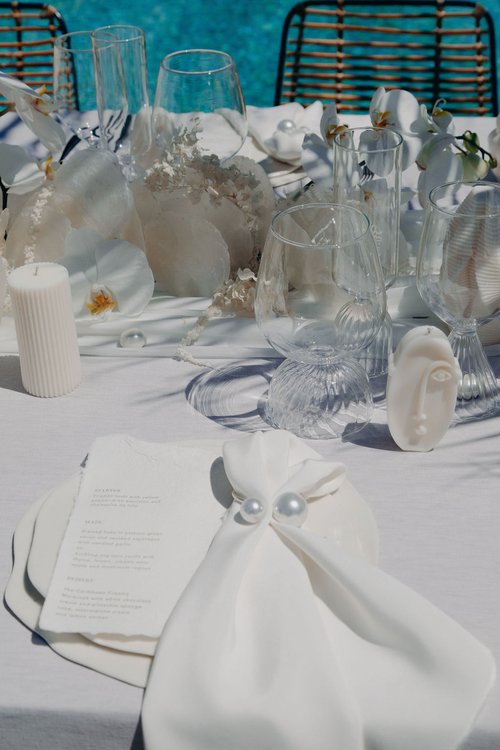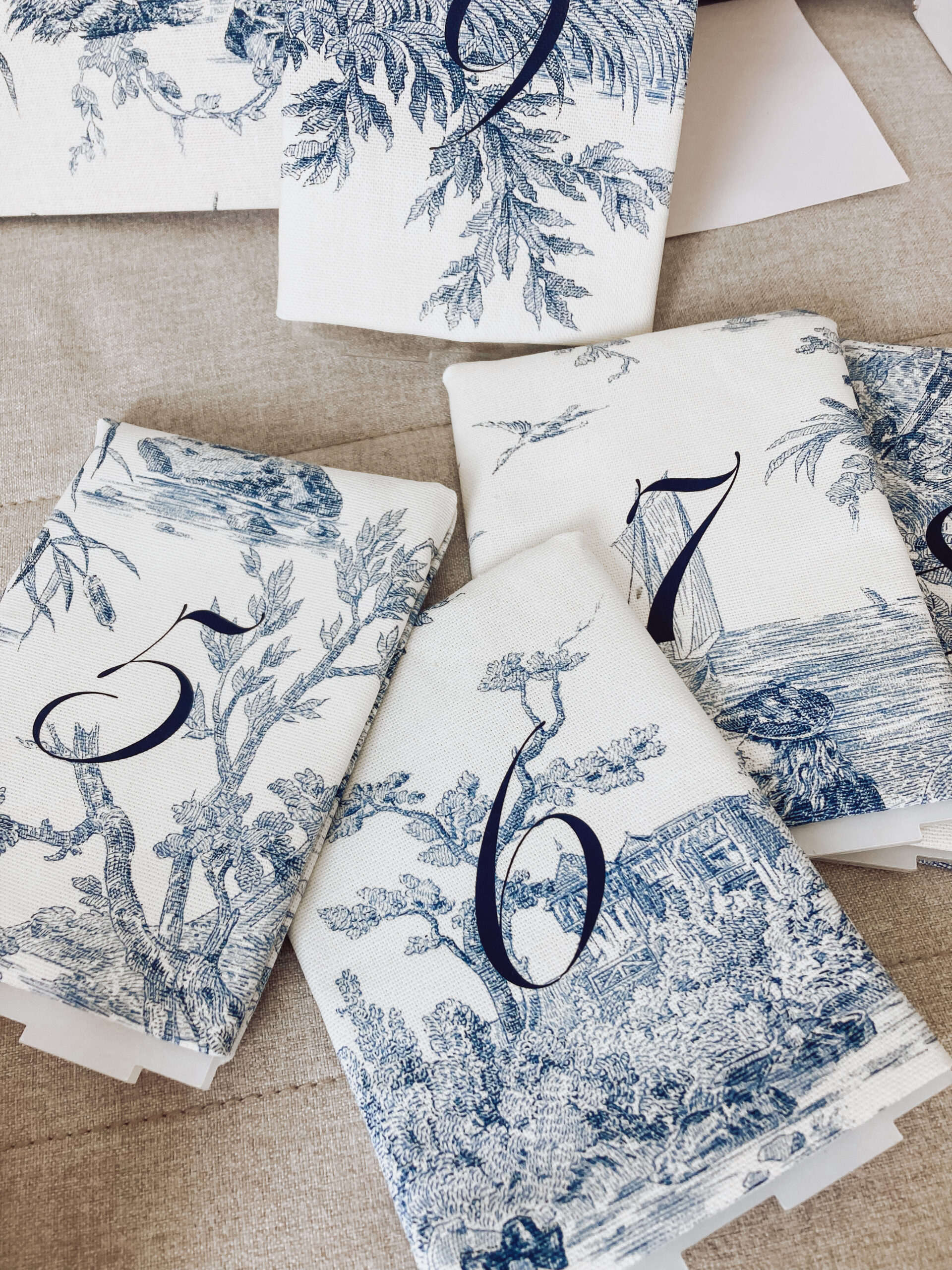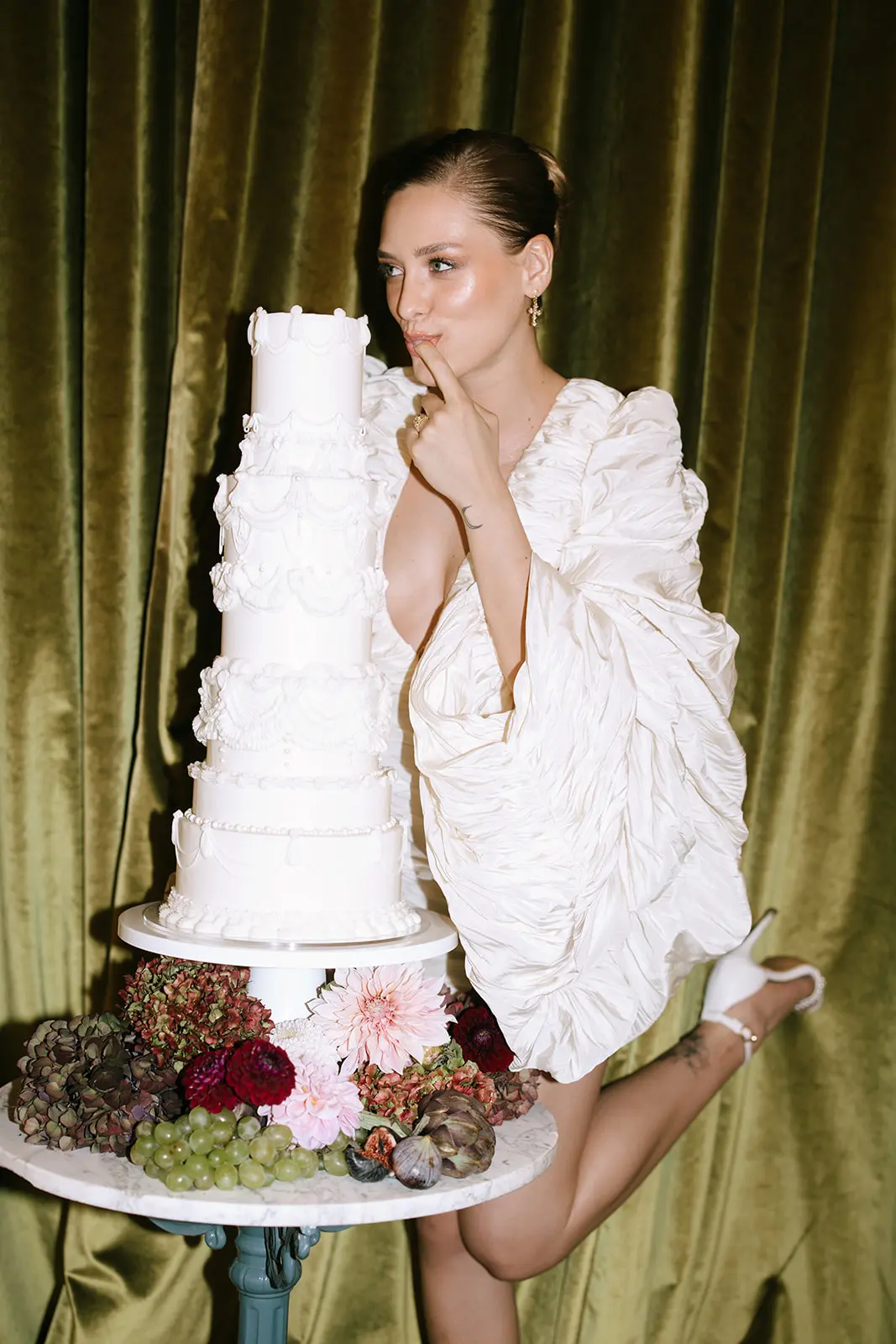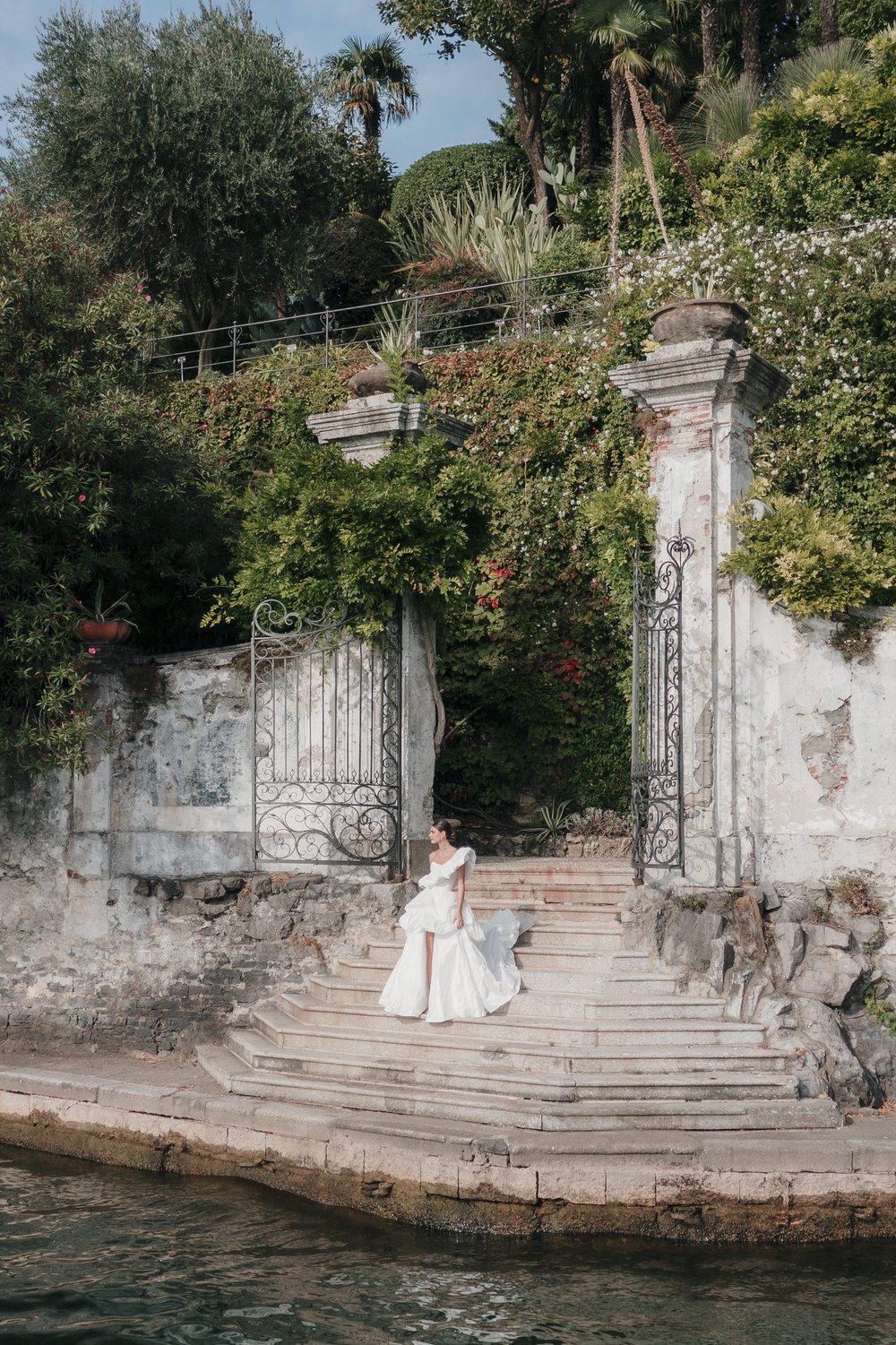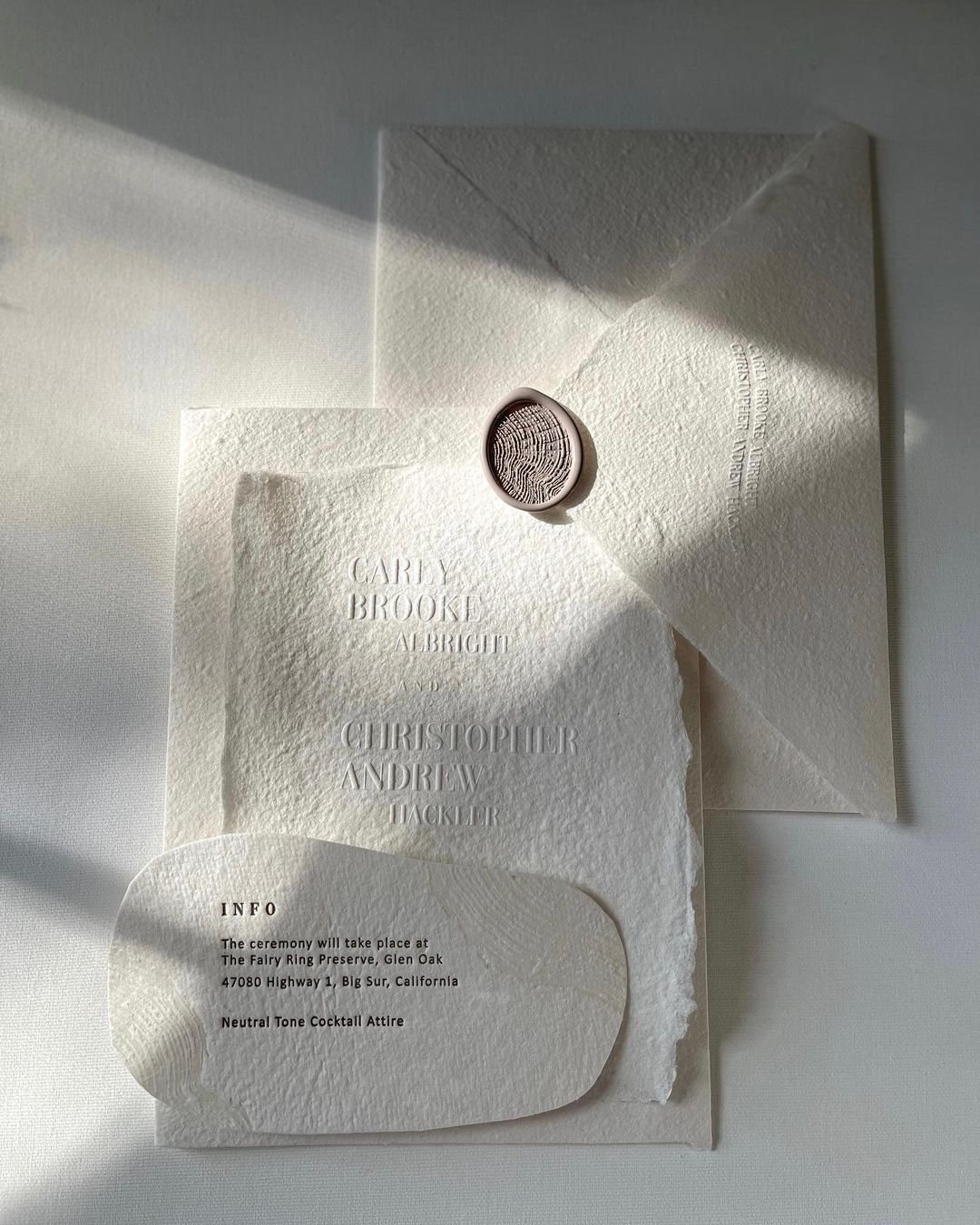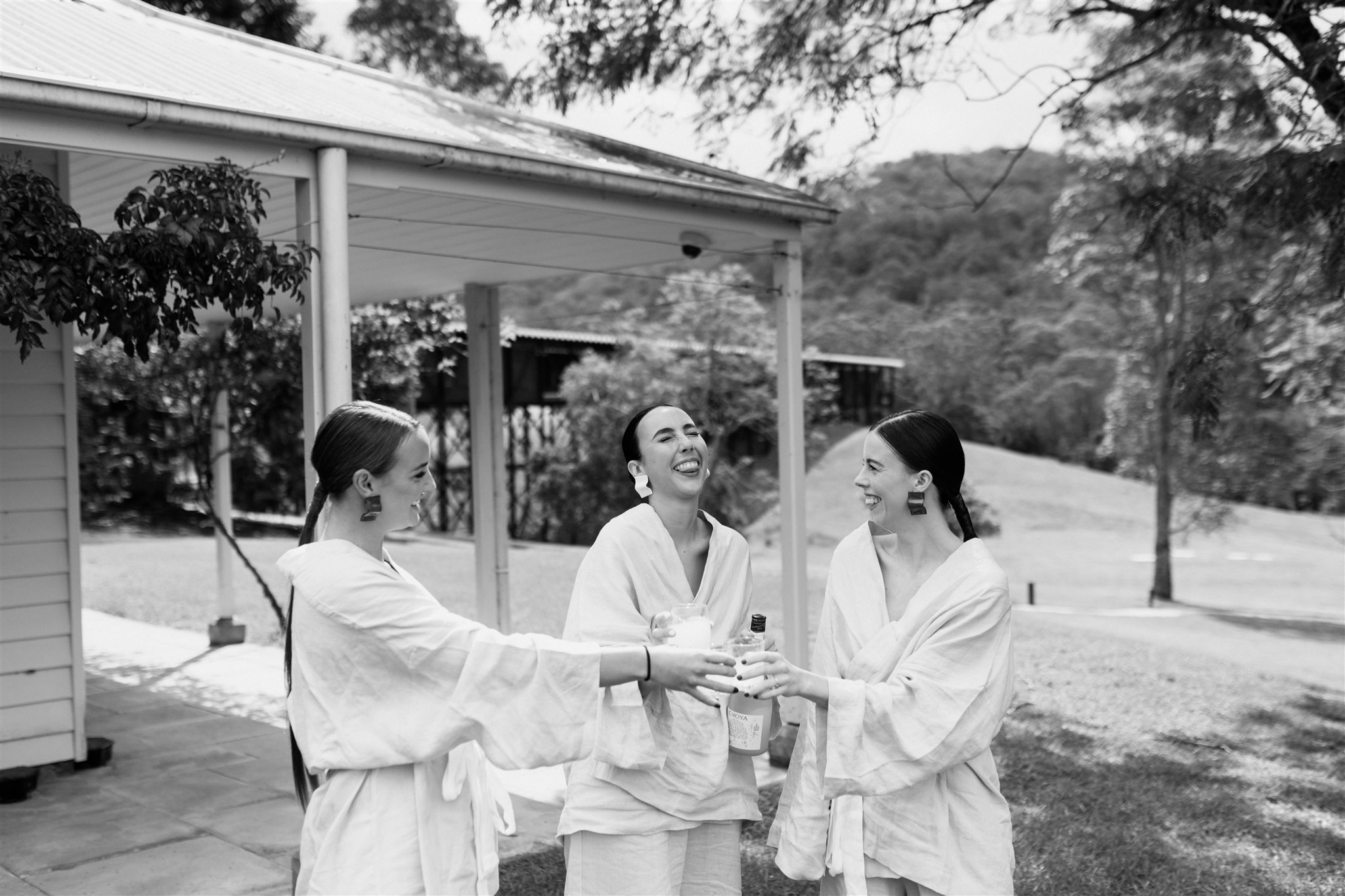Your wedding invitation suite is the prelude to your celebration, setting the tone and building anticipation for your special day. However, delving into this aspect can sometimes feel overwhelming. Where do you start? What should be in your suite, and how do you make the right choices? What’s the essential wedding invitation information? If you ask yourself these questions, you’re in the right place! Our expert, Marine Frionnet, a graphic and stationery designer and the owner of Atelier Petit Papier, is here to guide you. She’s created a comprehensive breakdown of the key elements to include in your wedding invitation suite.

MEET THE EXPERT
Marine Frionnet is the designer, businesswoman, and creative force behind Atelier Petit Papier, which was established in 2017. Each material is selected with care, and all the products and services Marine offers are designed and manufactured at her workshop in Ajaccio, Corsica, in the south of France.
“I like to describe my style as pure and minimalist, although I also like to create bold and colorful designs occasionally. I am constantly seeking aesthetic pleasure, and my inspiration comes mainly from design and architecture, photography, fashion, traveling, and gastronomy… I particularly enjoy vintage furniture, pop art, the art deco style, and Japanese influences, such as wabi-sabi.”
Marine has crafted a comprehensive guide outlining the key elements to include in your wedding invitation suite:
Save-the-date
Main invitation
Extra cards (wedding program, reception card, directions, accommodations card, brunch invitation)
RSVP card
Embellishments.
Key Elements to Include in Your Wedding Invitation Suite
Save-the-date
If you have guests traveling from far away or if you live in a touristic region, save-the-date is highly recommended. Once you have set a date for your big day, you can start working on the STD. It allows your guest to book their trip/vacation long before you have all the details regarding the wedding (time and places, accommodations, and such). Save-the-date can be printed or digital. Either way, working with a graphic designer is the best way to ensure you will have a consistent design. Be careful about production: graphics designers are often booked 10/12 months before the event. If you are running late, digital is your best option.
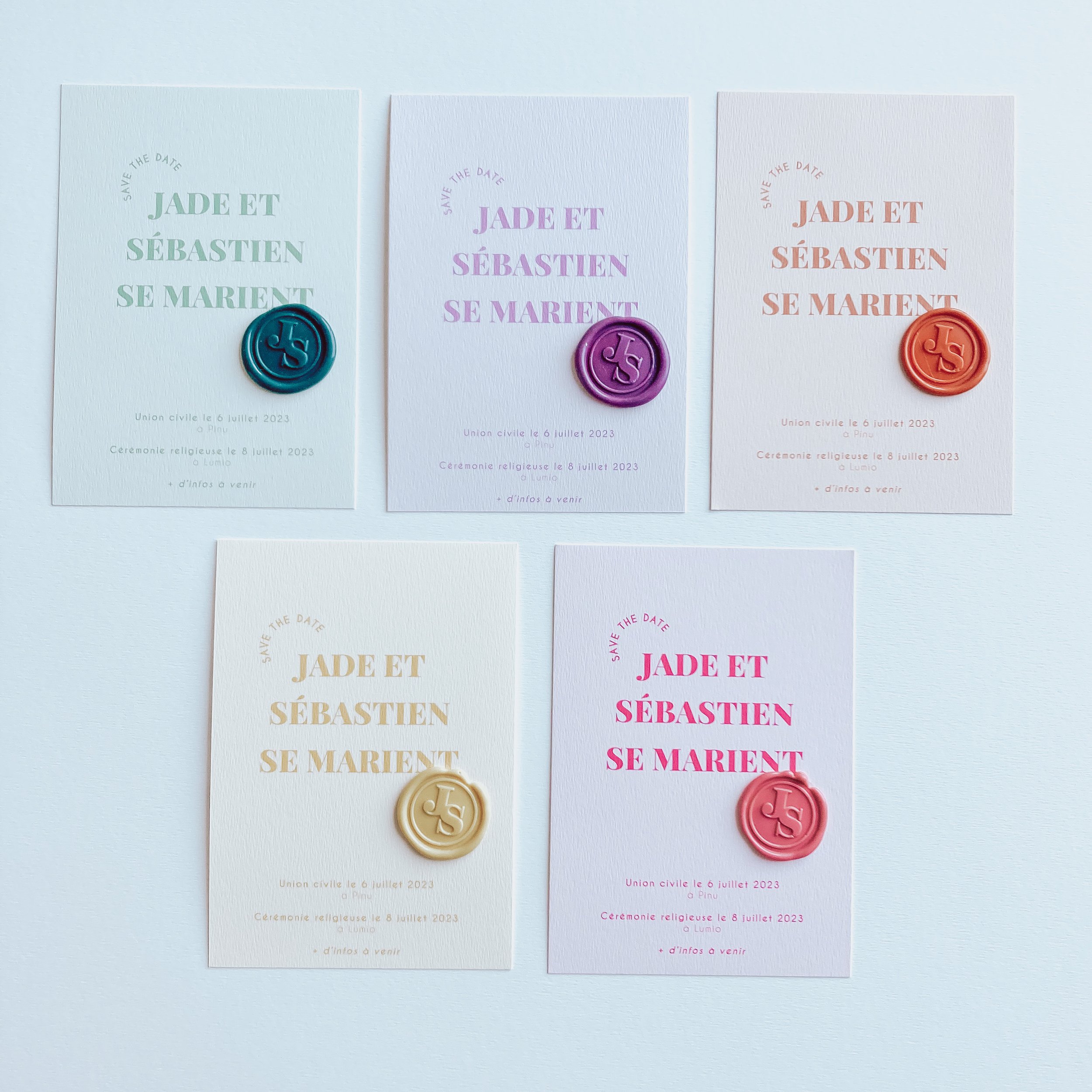
Main Invitation
The main invitation is the cornerstone of your wedding stationery. The vital details to include on the wedding invitation are names, date, and location. When selecting your invitation, your designer will help you navigate the many stationery options tailored to your tastes, wedding theme, and inspirations.
Choice of paper (color, texture, etc.)
Edges (straight or deckle)
Printing (digital, embossing, letterpress, gold foil…)
Embellishments (see p. 5).
You can choose your main invitation among a catalog or collaborate with a graphic designer to craft a bespoke suite, offering a more personalized and distinctive touch (although be mindful of production timelines). Additionally, the main invitation might include the wedding day program on its reverse side or printed on a separate card.
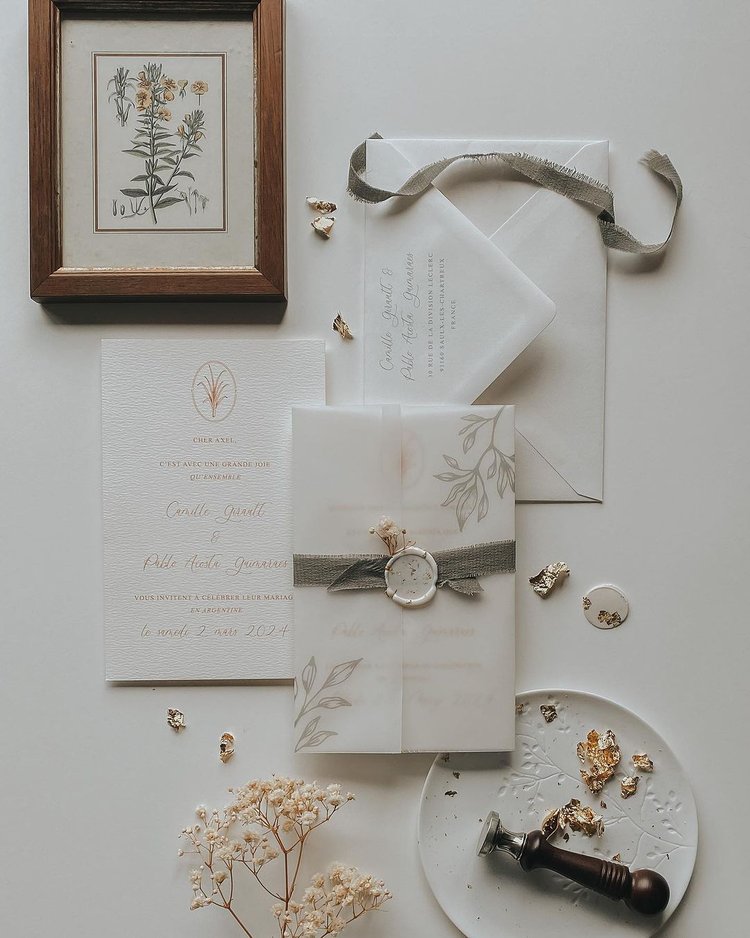
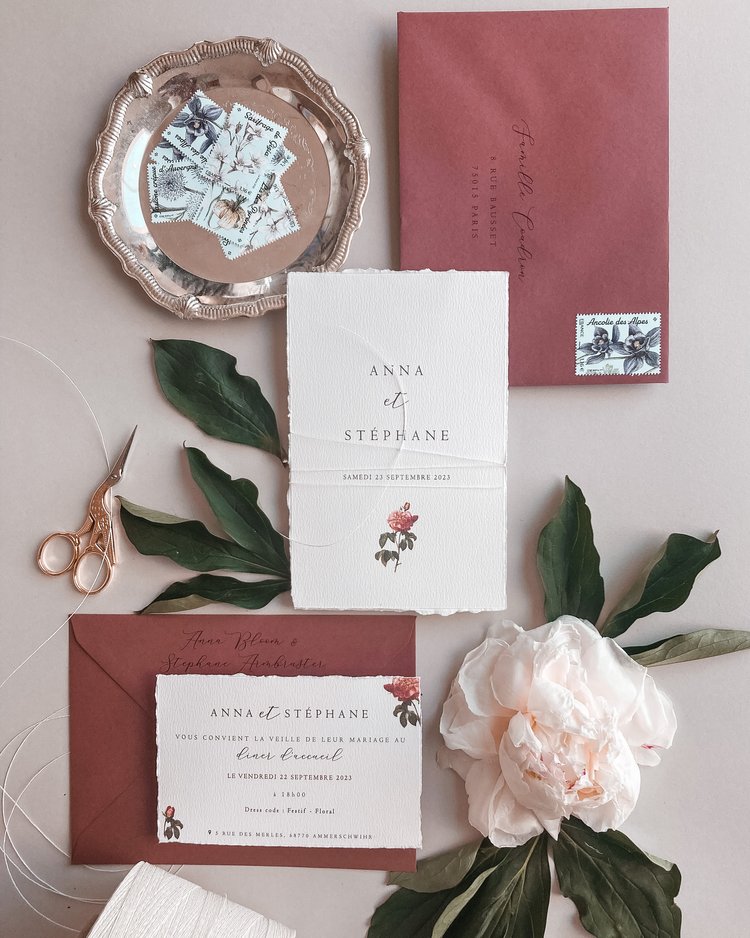
Extra cards
You can include additional cards in your suite for various purposes, such as the wedding program, reception card, directions, nearby accommodations, or invitations to post-wedding events like brunch. These extra cards can introduce a different paper color, creating an appealing palette. They can also be helpful if you intend to invite specific guests to particular event segments, like cocktail hour or brunch.
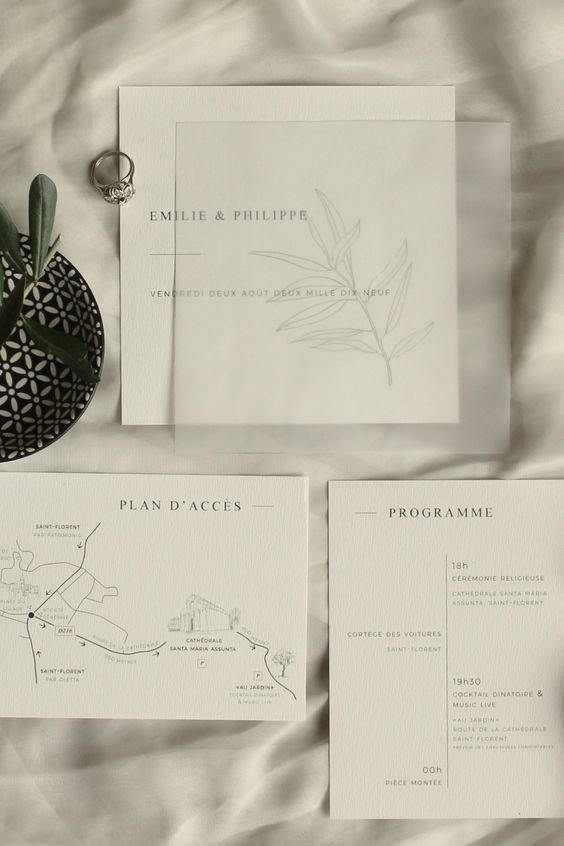
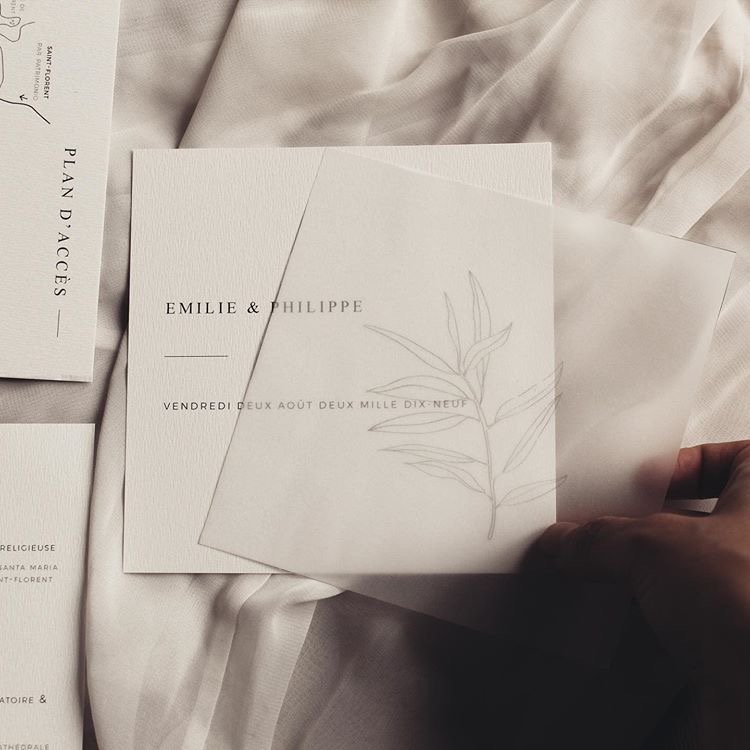
RSVP card
An RSVP card, also known as a response card, is an accompanying card included in a wedding invitation suite. It’s designed for guests to respond to the wedding invitation by confirming whether they will attend the event. Typically, the card includes a pre-printed response option such as “Accepts with pleasure” or “Regretfully declines.” The RSVP card plays a crucial role in planning the next steps for your wedding. You have a few options available:
- Include a separate card with a QR code. It’s an efficient way to collect responses and can be linked to your wedding website or an RSVP form.
- Use separate cards with a return envelope. While traditional, it’s an elegant method to gather responses. Including a return envelope with your address printed on it is recommended.
- Add your names, address, email, or phone number on the back of the main invitation. It’s is the most budget-friendly and straightforward option, but you might need to remind your guests and gather responses manually.
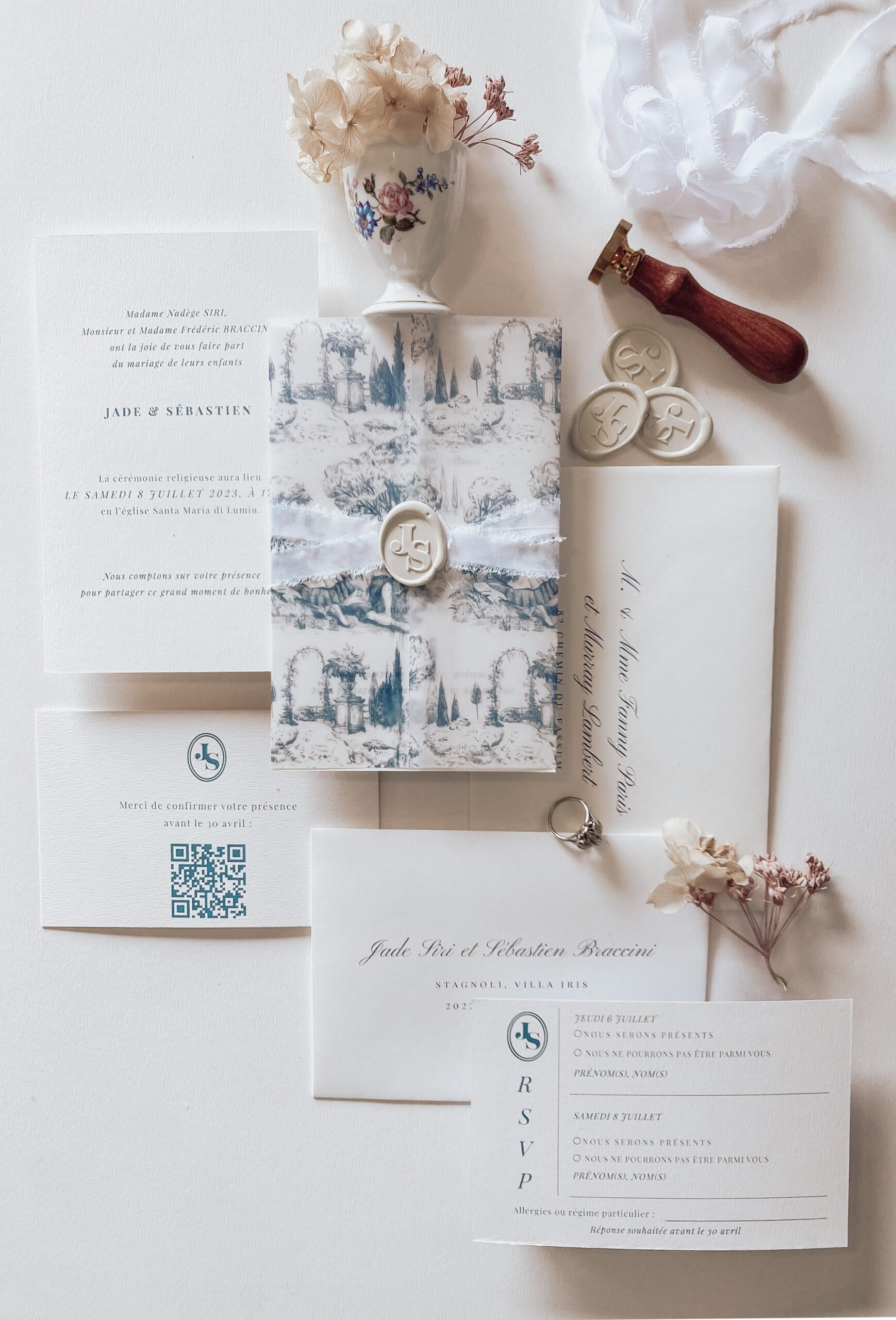
Embellishments
Embellishments, depending on your preferences and available options, are the perfect way to add those final touches and bring elegance to your wedding invitation suite:
Illustration
Every invitation can be brightened up with a watercolor drawing, botanical sketch, or flowered design. Other cards, such as an access map and a program, can also be illustrated to create a visual and artistic suite.
Vellum wrap
A colorful or black-and-white design can be printed on a transparent sheet of paper and wrapped around the invitations (and cards) to add a unique touch. If you choose this embellishment, you will also need twine and a seal to keep it in place.
Twine
With or without vellum wrap, an excellent way to finish the design is to add twine, even though you have one main invitation. In other cases, it’s not only beautiful but valuable to wrap all the elements together. There are many options available: paper or cotton twine, velvet or silk ribbon with multiple choices of fabric and colors. Your stationery designer will guide you through this part and recommend the best option to complement your invitation suite.
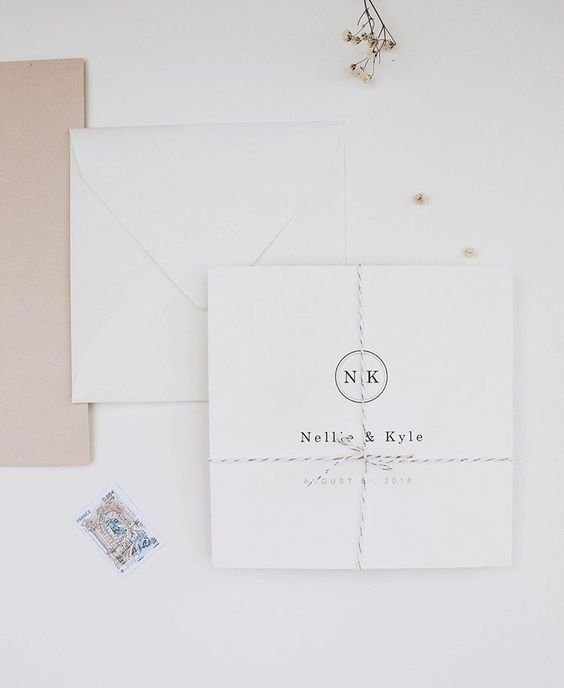
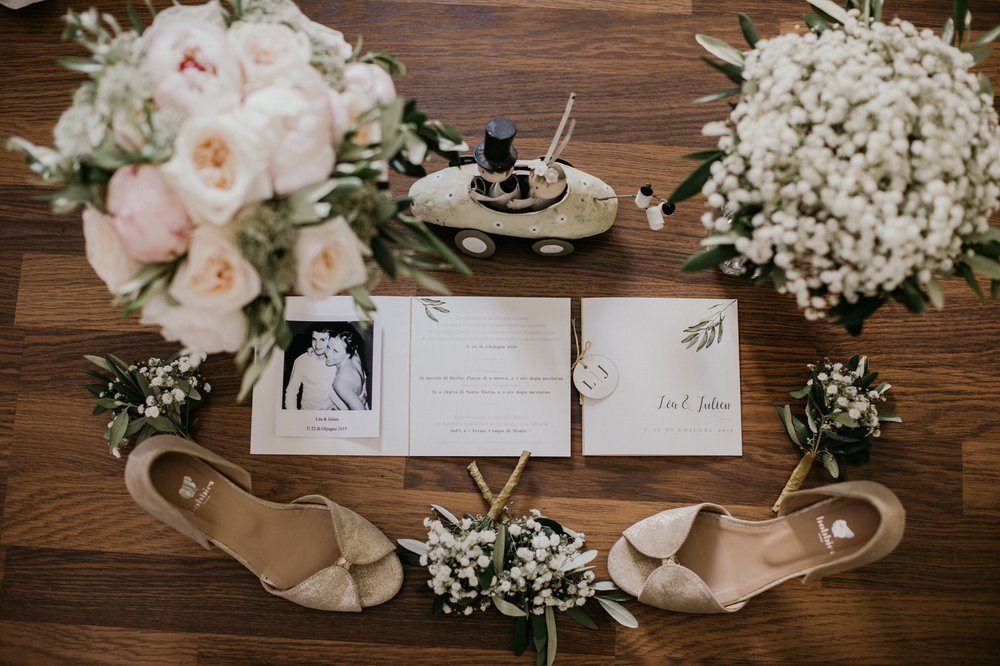
Photo: 2 – Felicia Sisco
- Envelope liner
The envelope liner is a separate paper fixed inside the envelope. It can be printed with an excellent illustration, pattern, or a different color from the envelope to add texture to your design.
Wax seal
Bespoke monograms or neutral seals with dried flowers, golden leaves, etc., are elegant ways to finish the invitation. Seals can be fixed on the invitation (in addition to the wrap and twine) or on the back of the envelope. Use one or the other but not both to avoid exceeding the thickness of the invitation. Stamping both would also be heavier, so more expensive.
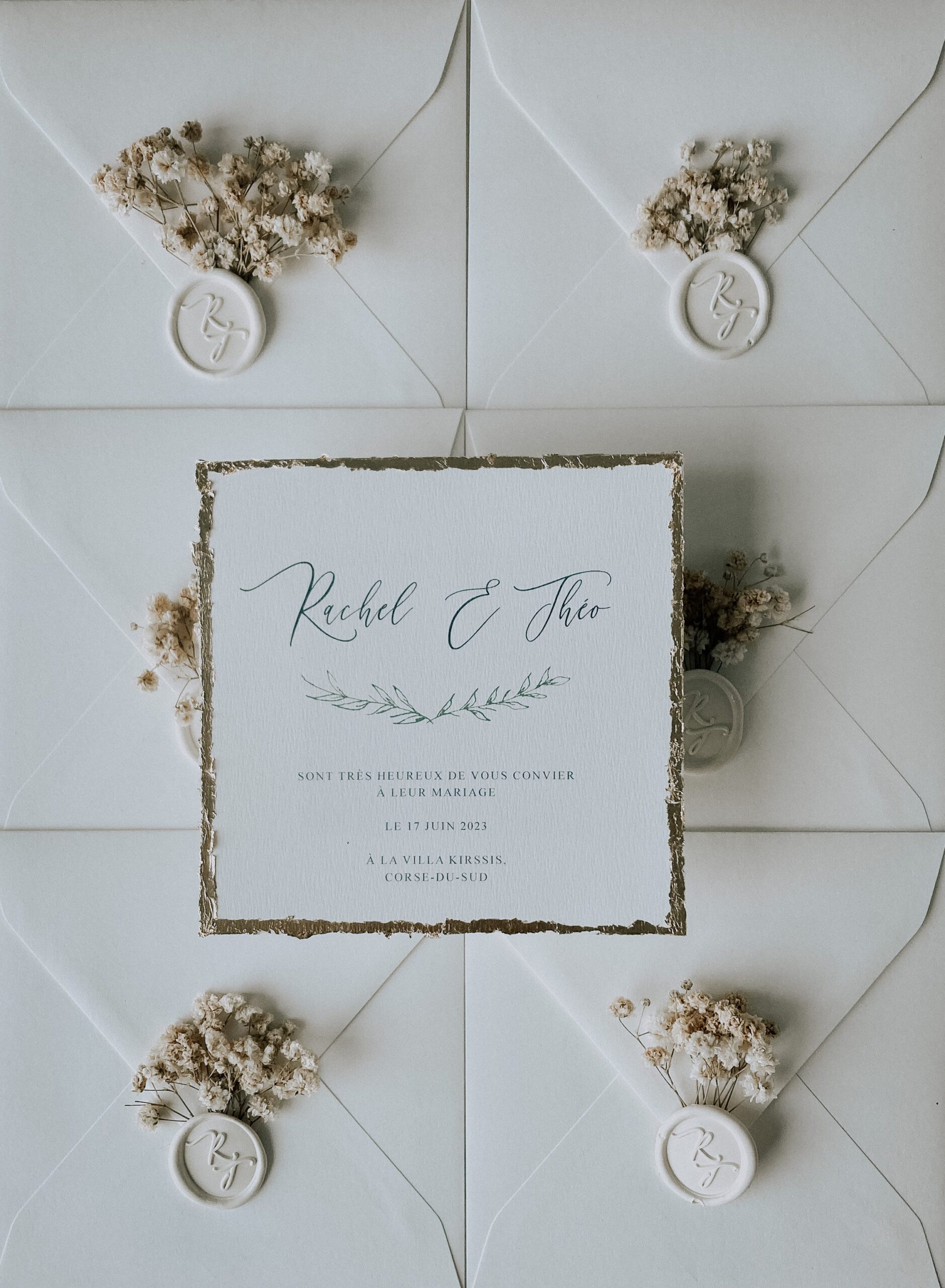
Remember, your wedding invitation suite is a reflection of your personalities and the celebration you’ve envisioned. As Marine Frionnet highlights, key parts of a wedding invitation suite are the save-the-date, main invitation, extra cards (like the wedding program, reception card, directions, accommodations, and brunch invitation), RSVP card, and any embellishments. Pay attention to details, keep it cohesive, and infuse it with your unique style to make a lasting impression on your guests.

